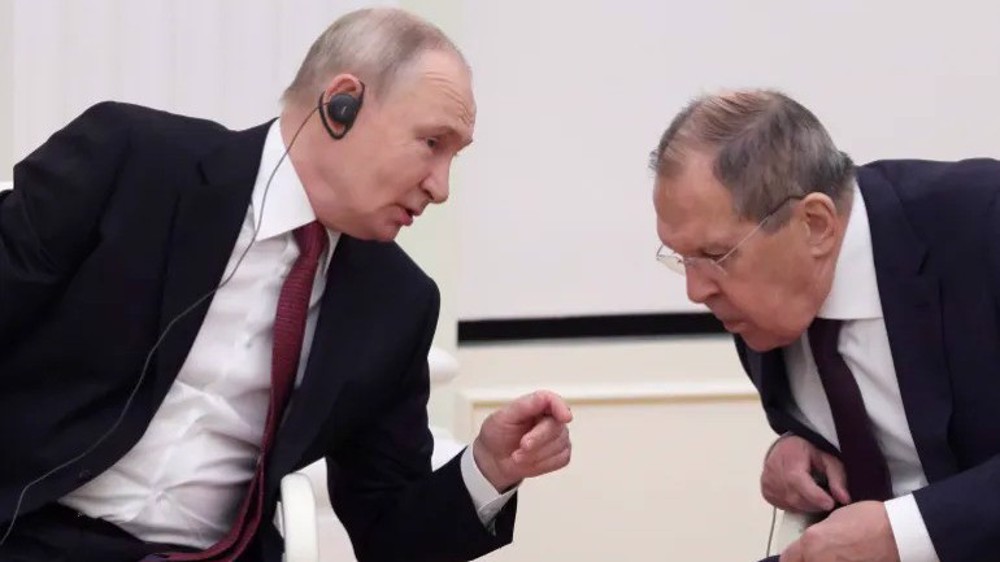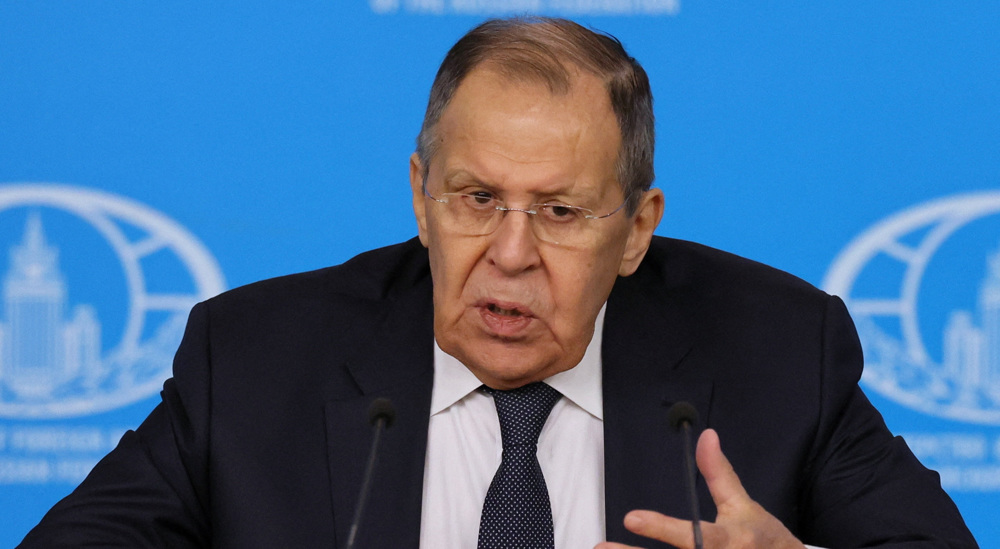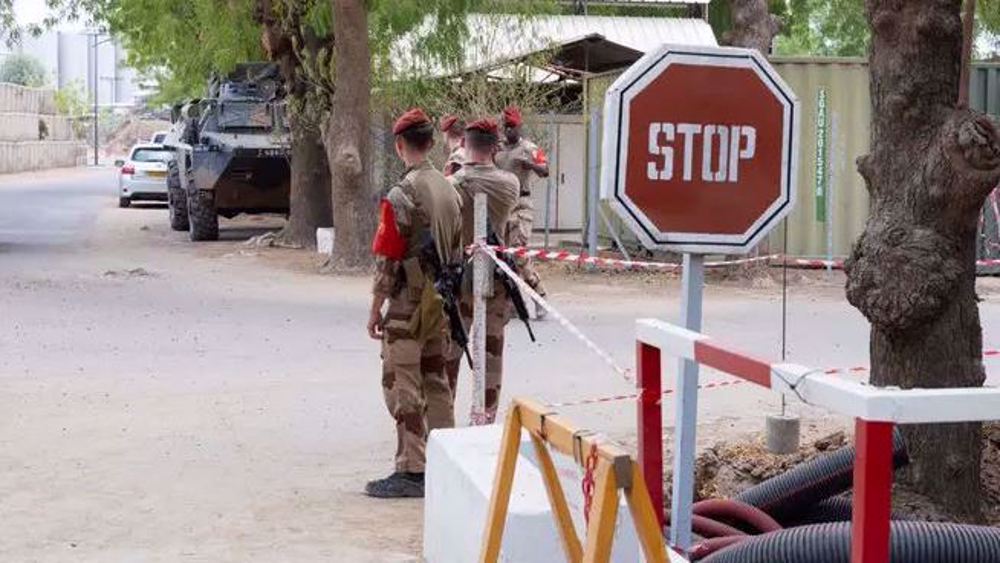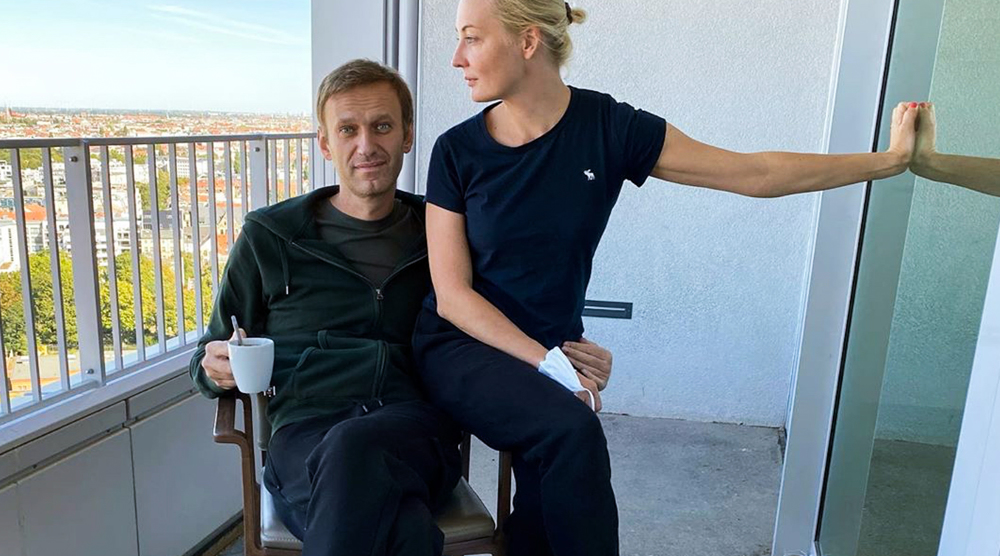Russia denounces French-German ‘blackmail’ over Navalny
Russia has denounced as “unacceptable” a recent statement by France and Germany accusing the Kremlin of poisoning opposition figure Alexei Navalny, saying it amounts to “blackmail.”
Russian Foreign Ministry spokeswoman Maria Zakharova made the remarks on Wednesday, after French and German foreign ministers directly accused Russia of “involvement and responsibility” in the alleged poisoning of Navalny with Novichok, a Soviet-era nerve agent, announcing that they will seek EU sanctions over the case.
“The declaration of the two ministers, unacceptable in content and tone, signals Paris and Berlin’s categorical lack of desire to consider the facts,” Zakharova said in a statement, adding that the “threats” were meant to “blackmail” Russia.
In a joint statement earlier on Wednesday, France and Germany declared that they were submitting a proposal to European partners targeting individuals they deem responsible for Navalny’s alleged poisoning, as well as entities involved in Russia’s Novichok program.
“No credible explanation has been provided by Russia so far,” the statement said. “In this context, we consider that there is no other plausible explanation for Mr. Navalny’s poisoning than a Russian involvement and responsibility.”
Moscow has denied any involvement in any attack on the opposition figure. Russian doctors, who had examined Navalny before he was transferred to a hospital in Berlin, said they had found no trace of any poison in his blood.
The German government claimed last month that Navalny had been poisoned with a Novichok-family toxic agent. Berlin further claimed that three EU laboratories, including those in France and Sweden, had confirmed its test results for the Russian blogger.
Russia has urged Germany to provide details of its tests on the opposition figure.
British Foreign Secretary Dominic Raab also accused Russia of involvement, saying London would work with international partners to “take forward sanctions targeting Russian officials and others.”
Zakharova further said France and Germany appeared to be leading an “anti-Russian coalition” within the EU despite previous assurances that they wanted “partnership with Russia.”
The joint statement came a day after the Organization for the Prohibition of Chemical Weapons (OPCW) claimed the presence of a substance similar to Novichok in Navalny’s blood.
The Hague-based agency said, however, that the substance detected in the samples was not on the list of banned chemical weapons and was a new and undeclared variant in the Novichok family.
Russia says prevalent allegations that Moscow poisoned Navalny are a “disinformation campaign” to help promote new sanctions against the country.
Navalny was discharged from inpatient care at Charite Hospital in Berlin more than two weeks ago. He had allegedly spent 24 of his 32 days of treatment in intensive care.
Trump administration moved to cut funding for ICE body cameras
VIDEO | Qeshm: Iran’s biggest island boasts 1st UNESCO geopark in region
VIDEO | People in Spain’s Granada mobilize against Gaza genocide, US imperialism
VIDEO | Thousands protest in Brussels over austerity measures
Kata’ib Hezbollah asks fighters to prepare for 'war' in support of Iran
Israeli warplanes conduct new aggressions across southern Lebanon
VIDEO | Possible US-Israeli aggression on Iran
VIDEO | US deadly protest crackdown
















 This makes it easy to access the Press TV website
This makes it easy to access the Press TV website